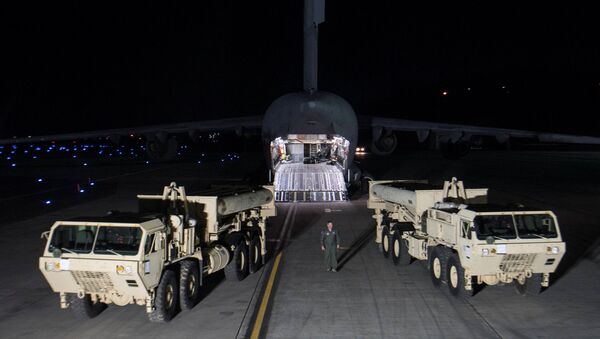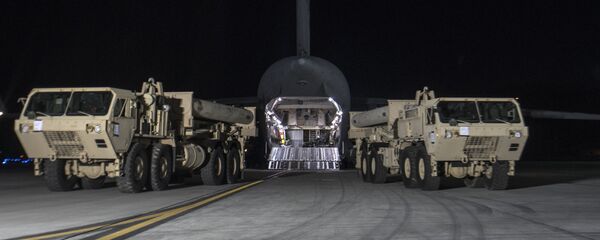WASHINGTON (Sputnik) — The election of Moon Jae-in as the next president of South Korea offers hope that the US Theater High Altitude Area Defense (THAAD) system will be withdrawn from the country soon after it was installed there, peace activist Helen Caldicott told Sputnik on Tuesday.
"The election of Moon is very significant," Caldicott said, "He is against the THAAD antimissile placement which the Americans rushed to deploy just before the South Korean election and there is great hope that he may be able to bring peace and stability to the Korean Peninsula."
Moon won the South Korean presidential election on May 9 by a wide margin and has vowed to revive the "Sunshine" policy of peacefully reducing tensions with North Korea followed by previous presidents Kim Dae-jung and Roh Moo-hyon from 1998 to 2008.
"There are also hopes that within time he will be able to maneuver the removal of THAAD," Caldicott, founder of Physicians for Social Responsibility, the organization that was the co-winner of the 1985 Nobel Peace Prize, said.
If Moon succeeds he would frustrate the policies of Department of Defense war hawks on the Korean issue and would also cut sales of expensive weapons systems to the United States and South Korea, Caldicott pointed out.
The exercises every spring involve thousands of US and South Korean troops just south of the 28th parallel, Caldicott recalled.
But when similar war games are held within the US Department of Defense, they "almost always lead to nuclear war," she pointed out.
President Moon genuinely wanted to eliminate that danger from his country and the region, Caldicott observed.
"Moon wants to negotiate with North Korea, and is strongly opposed to the THAAD anti-missile system," she also remarked.
Moon’s personal history had made him committed to building good relations with Pyongyang, Caldicott added.
"He is the child of refuge parents from North Korea and he favors the sunshine policy of friendship and possible reunification of the two Koreas," Caldicott concluded.



